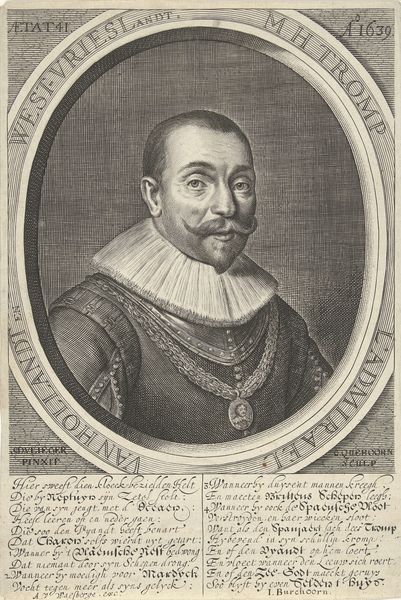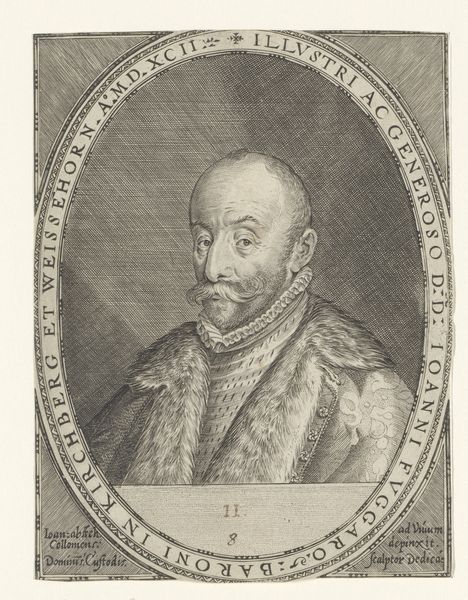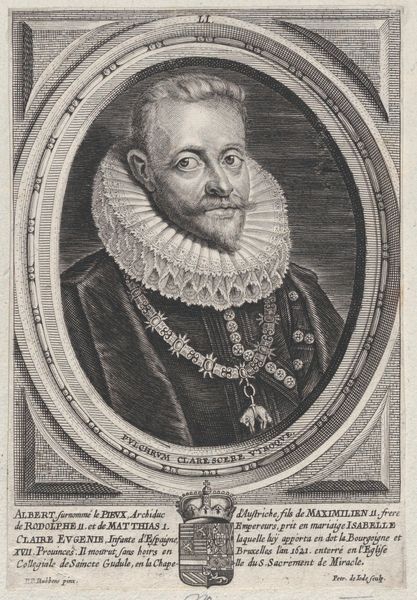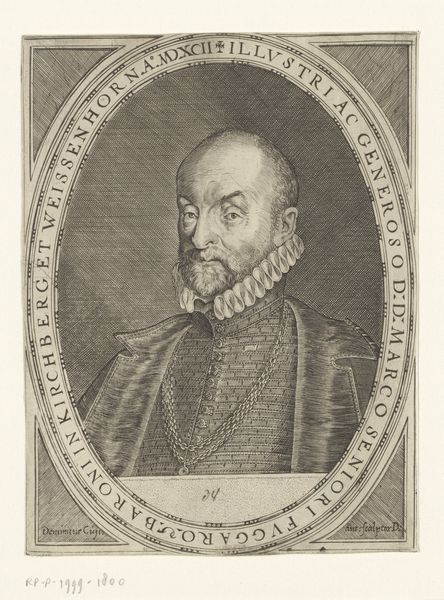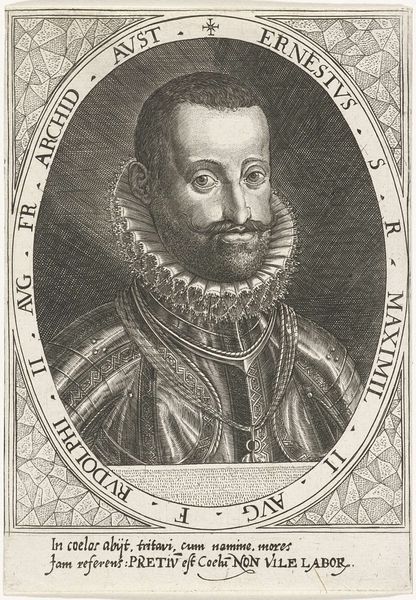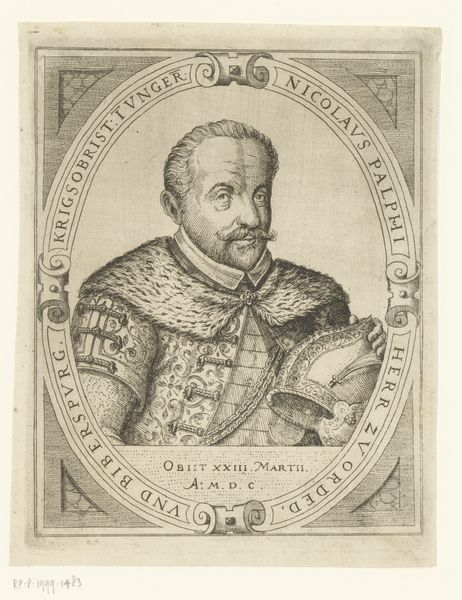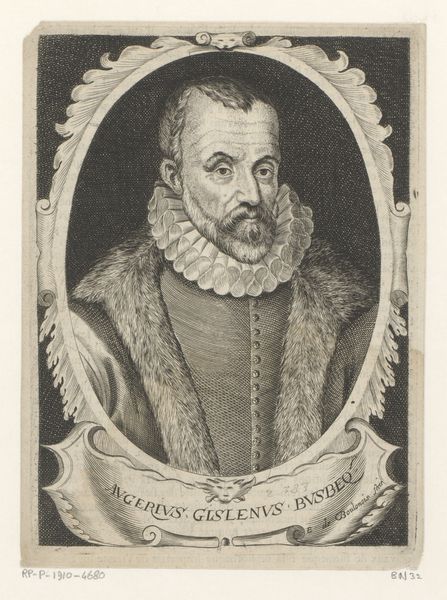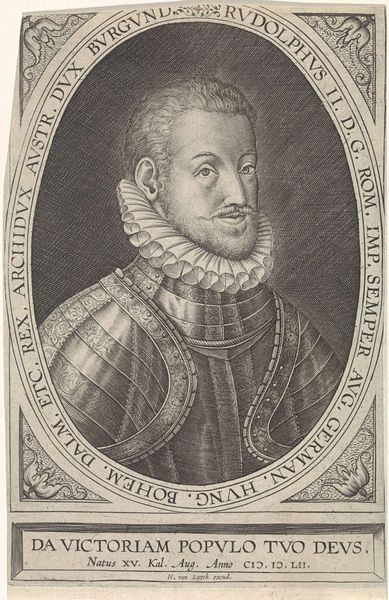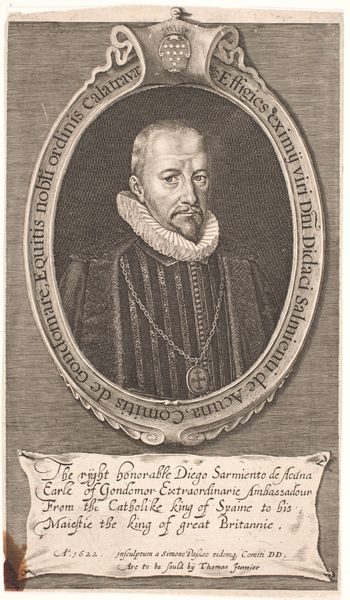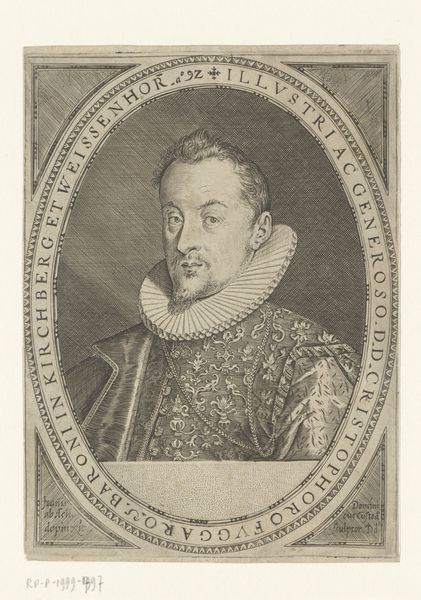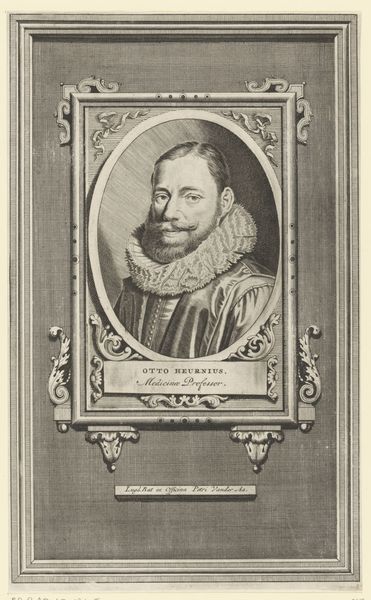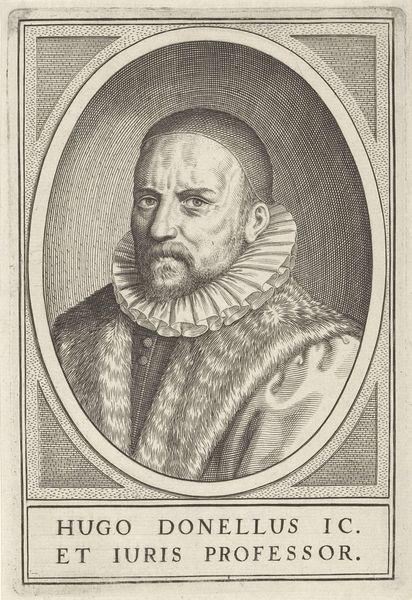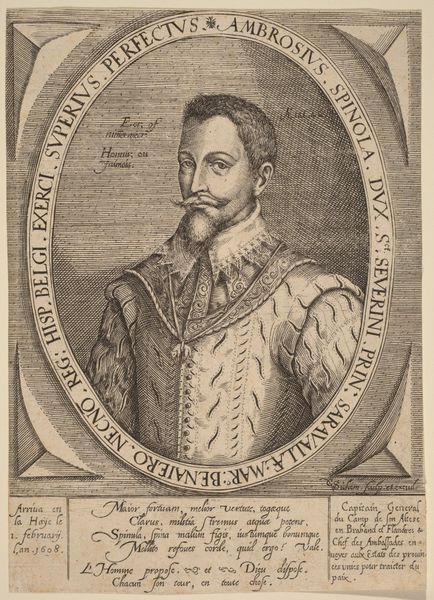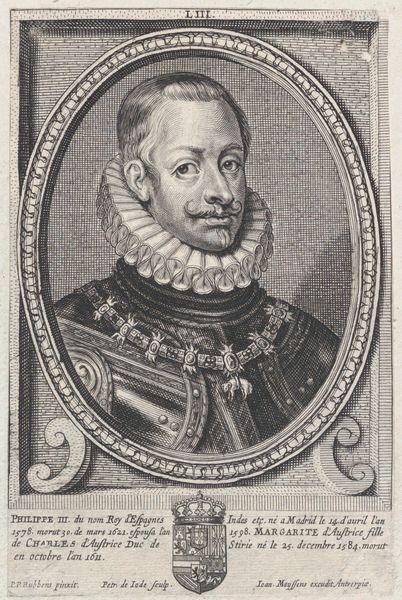
print, engraving
#
portrait
# print
#
old engraving style
#
mannerism
#
figuration
#
form
#
personal sketchbook
#
geometric
#
line
#
history-painting
#
engraving
Dimensions: height mm, width mm
Copyright: Rijks Museum: Open Domain
Dominicus Custos created this portrait of Octavianus Fugger, sometime between 1560 and 1615. It offers us a glimpse into the intersection of wealth, power, and identity during the late Renaissance. Fugger, a member of the famously wealthy Fugger banking family, is depicted with the symbols of his status. Consider the intricate details of his garments, the high collar, and the confident gaze, all of which communicate authority. But this image is more than a record of wealth; it's a study in constructed identity. Custos's engraving reflects the social and economic transformations of the time. The Fuggers, originally merchants, rose to become a dominant force in European finance, wielding considerable political influence. The portrait captures their efforts to solidify their status through visual representation, aligning themselves with the established nobility. The image reflects the emotional dimensions of power. It is a calculated performance, a carefully crafted persona meant to inspire awe and respect. It's a potent reminder of how art can both reflect and shape societal perceptions of identity and status.
Comments
No comments
Be the first to comment and join the conversation on the ultimate creative platform.
